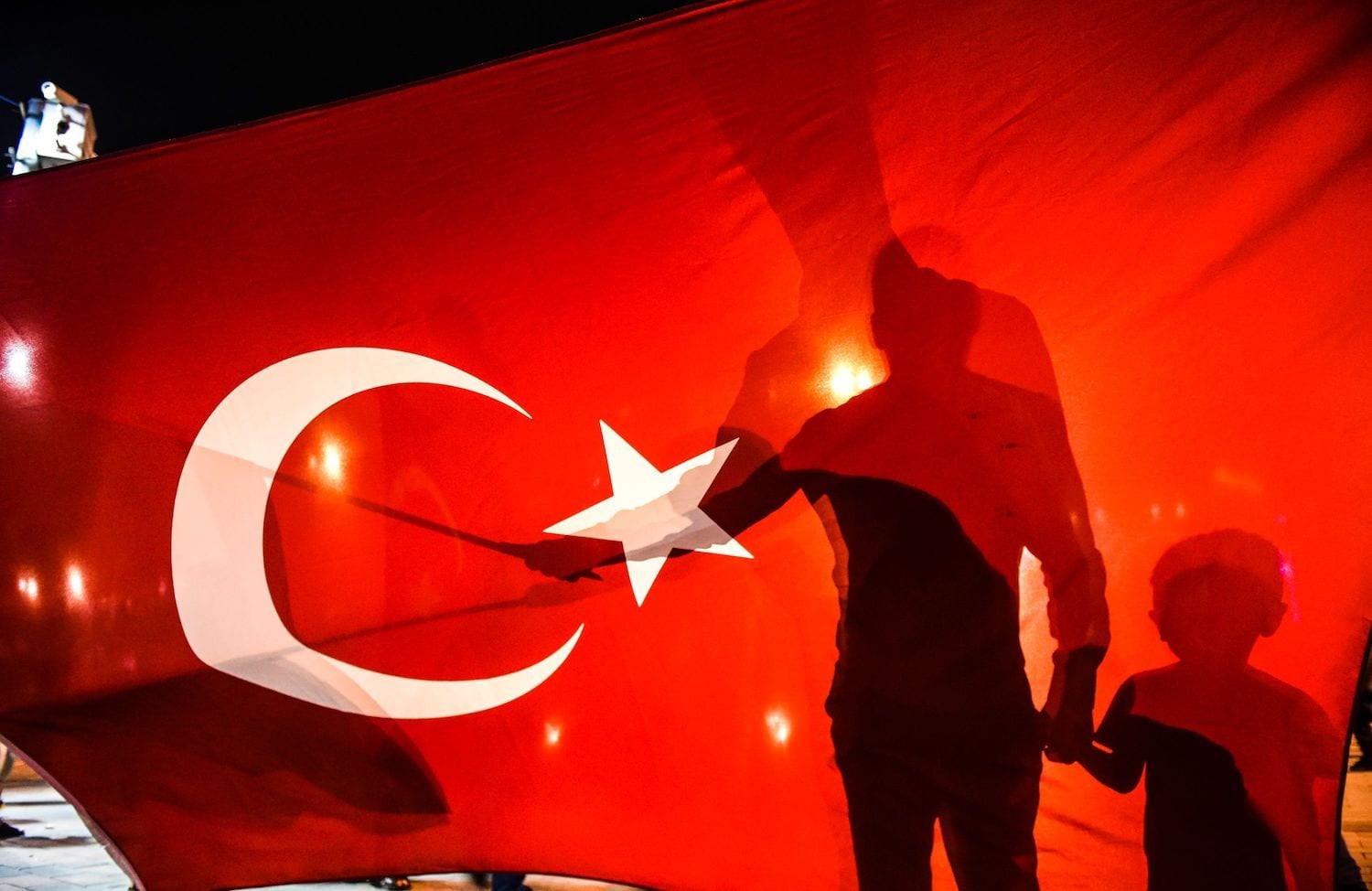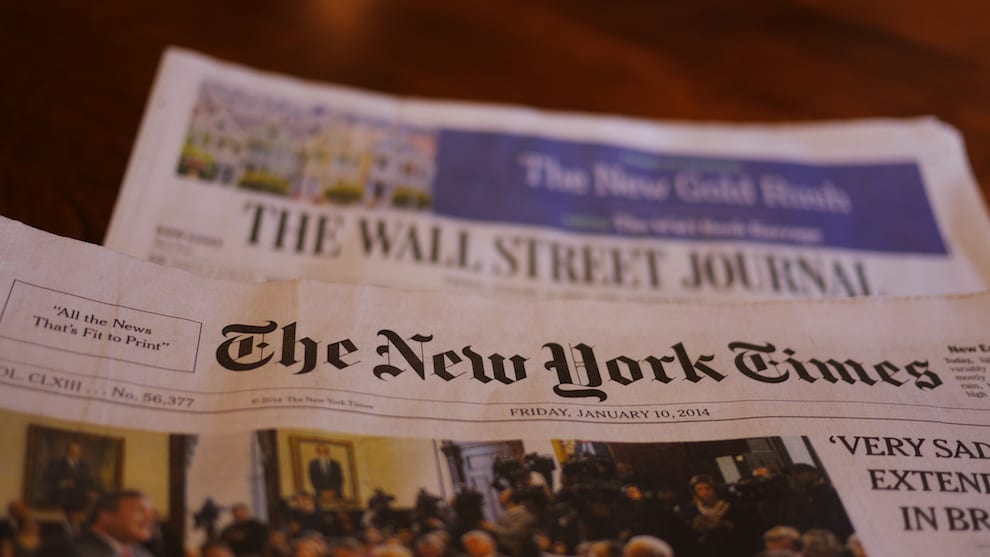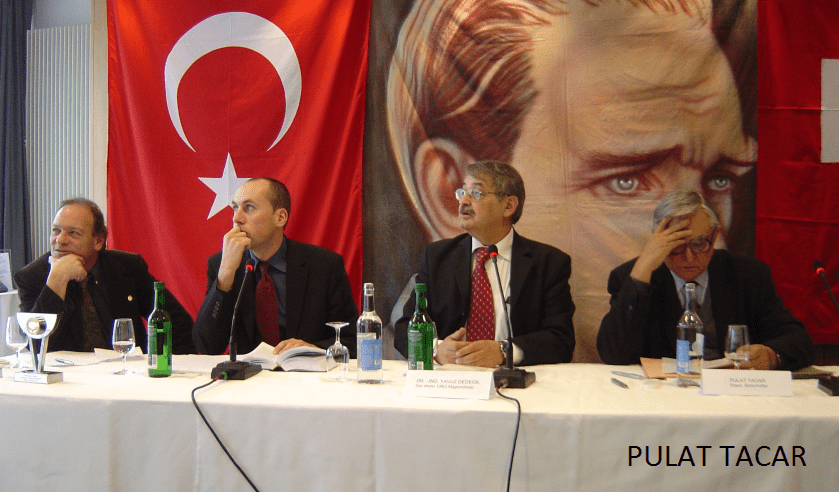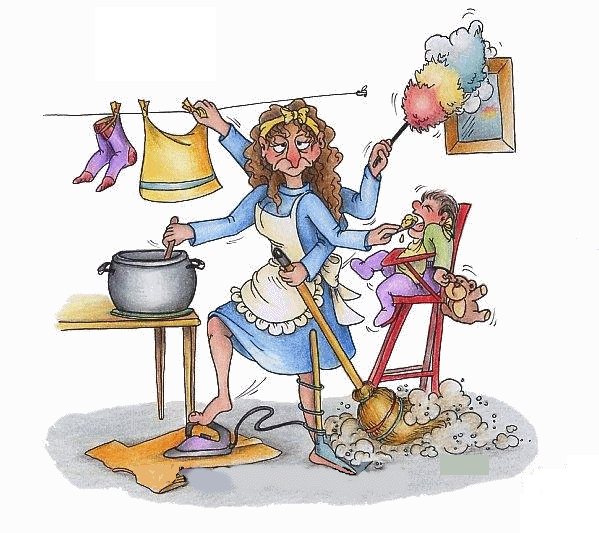The German chancellor’s most likely successors are both women — but the similarities end there.
It shouldn’t surprise that Angela Merkel, as the leader of Germany’s biggest conservative party, has shied away from being called a “feminist.” But it’s indisputable that her three terms as chancellor (the fourth term began last week) have changed the lives of German women for good. Doors previously shut to them have been opened — nowhere more pronouncedly than in German politics itself.
Even as a new four-year term gets underway, the outlines of the post-Merkel era have already come into view. Germany’s cabinet has been stocked with new female faces, including atop both Merkel’s Christian Democratic Union (CDU) and the center-left Social Democratic Party (SPD), which means women are likely to lead the country for years to come. And nobody is better situated to compete to replace Merkel as chancellor four years from now than the SPD’s freshly installed leader, Andrea Nahles, and the CDU’s new general secretary, Annegret Kramp-Karrenbauer.
The two politicians — Nahles, 47, and Kramp-Karrenbauer, 55 — have been tasked by their respective parties to do what their male predecessors couldn’t: namely, stop the disintegration of Germany’s big-tent postwar establishment. In the September 2017 election, both parties chalked up record losses — the CDU with 33 percent of the vote (which includes its partner the Christian Social Union), the SPD with a lowly 21 percent — leaving them with few alternatives but to reluctantly join forces again in a “grand coalition,” for the third time since 2005. But this latest halfhearted, cobbled-together partnership will likely accelerate the trend. The SPD now stands at 19 percent in polls, just five points ahead of the far-right Alternative for Germany. Two weeks ago, they were even at 15 percent a piece.
Both Nahles and Kramp-Karrenbauer clearly believe that they are equal to the generational task of pulling their parties out of their death spirals. Both are career politicos, practicing Catholics, and hail from small German towns along France’s borderlands just over a hundred miles from each other. Unlike Merkel, both are mothers: Kramp-Karrenbauer of three, Nahles of one. Like the present chancellor, both project an air of serious professionalism while also steering clear of the arrogant style common among the alpha males who still populate much of their respective parties’ ranks.
But that’s where their similarities stop.
Nahles is a known commodity on the German national stage, having nimbly climbed the party’s hierarchy since her entry into the SPD as an 18-year-old. Initially on the party’s anti-capitalist left, she has since mellowed without relinquishing her Attac membership. In the party’s executive since 1997, she has held half a dozen posts, though not one of them determined by popular vote. Most recently, from 2013 to 2017, she served as the federal minister for labor and social issues, where she muscled through the term’s most impressive socially minded legislation: a national minimum wage, pension reform, and safeguards for the temporarily employed. Today, her expertise and pragmatism are appreciated even in the CDU, which originally doubted that it could work with such a wild-haired rebel on anything.
The German media have dubbed Nahles “the boxer” — and not only because of her tenacity, toughness, and broad shoulders. In the thunderous speeches that have become her trademark — whether at union halls or at the SPD’s headquarters in Berlin — Nahles can look like a prize fighter in the ring, stabbing the air with clenched fists, her face grimaced and scarlet, eyes blazing.
Yet she also has a reputation for sometimes hitting too hard. Her diction can occasionally be churlish, almost adolescent. A few days after last year’s national vote, pledging vigorous opposition to a CDU-led government without the SPD, she said her party would deliver the CDU a “good smack in the kisser.” She had to apologize for that — and eat humble pie, too, when it became clear that another grand coalition was in the offing.
But Nahles has come as far as she has because Germans have largely been willing to chalk up her excesses to her working-class authenticity. Indeed, her father was a master mason, her mother a financial clerk. Nahles is a social democrat through and through, a true believer in social justice and respect for the working classes. Nahles was largely responsible for shoring up SDP support for the new coalition government, which many in the party, especially on the left, resisted. They argued that after hemorrhaging so much support the party needed a term in opposition, outside of Merkel’s long shadow, to renew itself. On a whirlwind journey across the country, Nahles won over reluctant comrades one local branch at a time.
In return, the SPD elected Nahles to the highest post in the historic party of August Bebel and Willy Brandt: the first chairwoman ever in the party’s 154-year history. “This is really something extraordinary,” explains Tina Hildebrandt, an editor at the weekly Die Zeit. “The SPD sees itself as the party of women’s rights, which historically it has been, but it’s always been a real men’s club. Men have always had the say. Nahles’s tenure is a kind of reality test for the SPD.”










